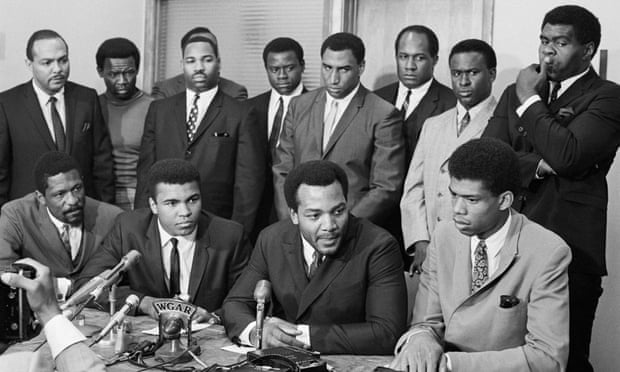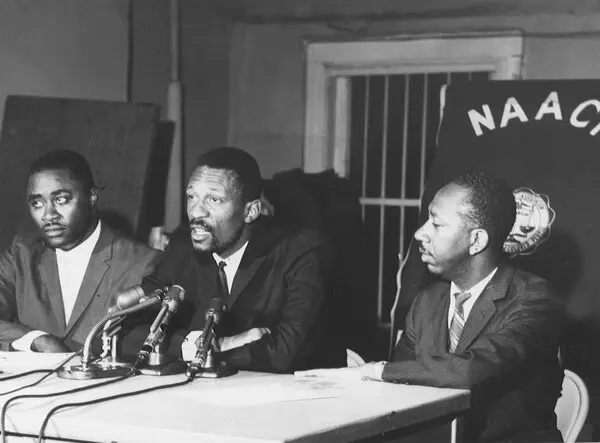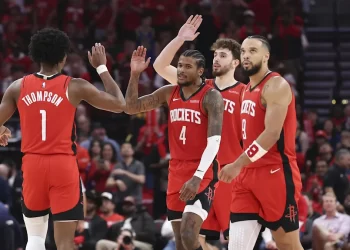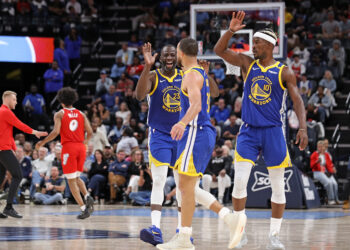By: Zachary Draves
He was a man who just happened to play basketball. He was a man who happened to help spur one of the greatest dynasties in all of sports. He was a man who helped revolutionize the game with his physical prowess. He was a man who didn’t ask to be treated as such but demanded it.
Bill Russell was many things to many people during his life, but in light of his passing at the age of 88, many are coming to realize that he was in fact a dignified and unapologetic black man who earned the validation that wasn’t always given to him. At the height of the Boston Celtics run to 11 NBA championships, Russell and his family were on the receiving end of some of the most barbaric examples of racism. Upon arriving in Boston in 1956, Russell was met with racist attitudes and insults from fans. In 1961, he joined with black players from the Celtics and the then St. Louis Hawks boycotting an exhibition game in Lexington, Kentucky due to acts of discrimination in the city. One day Russell’s home in Boston was vandalized with racist slurs and feces smeared against the walls.

(Courtesy: NBA.com)
All of which coincided with the burgeoning Civil Rights Movement in which Russell did his part in significant fashion. He was one of the forebears of what Dr. Harry Edwards called the “second wave” of athlete activism which was predicated upon the notion that black athletes in particular were advocating for their full humanity, not merely access as was the case for Jackie Robinson, Joe Louis, and Jesse Owens during the first wave of athlete activism.
In 1963, after the murder of Civil Rights Activist Medger Evers, Russell traveled to Mississippi to conduct a integrated basketball camp for kids. That August, he stood in solidarity with Dr. Martin Luther King Jr. at the March on Washington. In June 1967, he joined with Jim Brown, Kareem Abdul Jabbar (then Lew Alcindor), and community leaders in Cleveland to show public support for Muhammad Ali after he refused induction into the Vietnam War in what became known as the Ali Summit.

(Courtesy: Northeastern Unviersity Political Review)

(Courtesy: Bettmann/Bettmann Archive)
Russell also had sensibilities that shaped him into a mixture of all the major players in the movement. In other words, he was Dr. King one minute and Malcolm X the next but without contradiction. He understood that differing methods and approaches all were aimed at one goal, which was freedom and justice. He wasn’t the least bit shy in expressing pride in his blackness and expressed that in various ways from buying a purchase of land in the African nation of Liberia, which was founded by freed slaves, to wearing a dashaki at the peak of the Black Power phase of the struggle.
He had a profound impact on the athlete activists later on such as Colin Kaepernick, LeBron James, Craig Hodges, Steph Curry, Mahmoud Abdul Rauf, and Jaylen Brown to name a few who each expressed how he touched their lives. Another one he inspired was former NBA journeyman Etan Thomas who is a best selling author and activist. Thomas spoke of the time he got to meet Russell and share how he shaped his life.
“I grew up reading about him. Along with Muhammad Ali, Kareem Abdul Jabbar , John Carlos, Tommie Smith, etc, “he said. “Bill Russell was a pioneer. An athlete who used his position and platform to stand up for a bigger cause. He was the type of athlete I wanted to be like when I grew up. I had the honor of interviewing him for my book “We Matter: Athletes And Activism” and it was like getting the chance to interview one of your childhood heroes.”
In his later years, Russell’s continued his good work. In 2010, he received the in the Presidential Medal of Freedom by President Barack Obama. He remained true to his example and consistently expressed support to athletes who lent their platform for social justice. In 2017, he posted a picture of him taking a knee on social media in solidarity with Kaepernick. In August 2020, he praised the NBA players when they decided to boycott games in the Bubble after the police shooting of Jacob Blake in Kenosha, Wisconsin. Until his final breath, he never relented in his pursuit of the greater good.

(C0urtesy: Twitter)
Going forward, the best way to honor the life and legacy of Bill Russell is to tell his story in its entirety and without compromise. At a time when black history is under assault and grossly watered down, his example must be taught in a way that he would have wanted, which is to shine light on what he meant both on and off the court. That requires an unedited acknowledgment of the racist trauma he and his family endured and the unapologetic revolutionary actions he took to remedy society. He is not to be whitewashed and doing so would be an assault on his good name.
In the end, Bill Russell demanded to be seen and respected for who he ultimately was. Not just an incredible basketball player, but most importantly, a man.
Rest in Power.


 NFL
NFL




